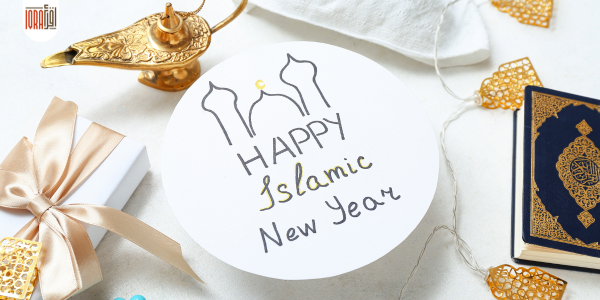Learn to Find Peace & Submission Through Forgiving Others
“I don’t want to forgive them! I just want to punish them with my anger!”
These are the words of a hurt believer, recalling their relationship with someone that hurt them deeply.
When framing her sentiment through the lens of forgiving in Islam, you’d have to wonder: “Is her anger punishing them, or is it punishing her?”
In a much longer hadith, the Prophet (peace be upon him) tells us that Ramadan is in three parts:
“…This is a month, the first part of which brings Allah’s mercy, the middle of which brings His forgiveness, and the last part of which brings emancipation from the fire of Jahannum (Hell).”
Now that we have reached the middle of Ramadan when Allah showers us with His forgiveness, it befits a believer to reflect on this. This is especially true when someone hurts us, but we have a choice to forgive them.
Allah Forgives You
We are in a time when many people are unhealed and feel broken. The concept of forgiving in Islam allows us to move past emotions that hold us back and keep triggering us. A great example of this mentality comes in the Seerah (life) of the Prophet (peace be upon him).
A well-known incident occurred at the time of the Prophet (peace be upon him), where his wife, Aishah (RA), was slandered. This incident is known as the “Incident of Ifk.” The meaning of ‘Ifk’ is “derived from the root “afika” which means ‘deliberately digressing from the right path.'” It took roughly three weeks before Allah cleared Aishah (RA) of the lies against her when He revealed Surah an-Nur.
A hadith about forgiveness
During this incident, Abu Bakr Siddiq (RA), the father of Aisha (RA), had a relative who had taken part in spreading this slander. This relative was someone Abu Bakr (RA) would support with his wealth, yet, this same relative contributed to the harm inflicted on him and his family. This hurt Abu Bakr (RA), and he said:
“…Abu Bakr As-Siddiq, who used to disburse money for Mistah bin Uthatha because of his relationship with him and his poverty, said, ‘By Allah, I will never give Mistah bin Uthatha anything after what he has said about Aisha.’ Then Allah revealed:– “And let not those among you who are good and wealthy swear not to give (any sort of help) to their relatives, those in need, and those who have left their homes for Allah’s cause, let them pardon and forgive. Do you not love that Allah should forgive you? And Allah is oft-Forgiving Most Merciful.” (24.22) Abu Bakr As-Siddiq said, ‘Yes, by Allah, I would like that Allah forgives me.’ and went on giving Mistah the money he used to give him before. He added, ‘By Allah, I will never deprive him of it.’ “ Sahih al-Bukhari 4141
We learn through this hadith, explaining the entire incident, that Allah responds to Abu Bakr’s (RA) feelings of hurt and wanting to cause retribution to his relative after the slander of his daughter. The Ayah asks, “Do you not love that Allah should forgive you?” Thus, we are made to understand that our reward for forgiving others is far greater than anything we could imagine.
Forgiving in Islam means we do it for the sake of Allah so that He will forgive us, InshaAllah. And what is better than earning the forgiveness of our Lord?
Forgiving Brings Forth Submission
Dr. Fred Luskin, author of “Forgive for Good,” speaks about how and why we should learn to forgive. He says, “Forgiveness is the ultimate resolution to unwanted loss or grief” (Phoenix Society). He also believes that the need to forgive means we object to something that happened to us. Therefore, “Forgiveness is making peace when you don’t get what you want.”
Two elements relating to this are part of forgiving in Islam:
1. Accepting Decree
“No disaster strikes except by the permission of Allah. And whoever believes in Allah – He will guide his heart. And Allah is Knowing of all things.” (Quran 64:11)
“And surely We will test you with a bit of fear and hunger, and loss in wealth and lives and fruits. And give good tidings to the patient who, when suffering comes to them, say: “We certainly belong to Allah, and to Him, we are bound to return.” (Quran 2:155-156)
If we accept our decree, we are no longer fighting with our hurt emotions. We learn to submit wholeheartedly to what we cannot control. That does not mean we don’t feel and aren’t hurt, and it means we grieve momentarily and then move on with the heart, fully absorbing that Allah is in Control. And that “To Him, we belong, and to Him is our return.”
2. Find Peace
Forgiving in Islam means we have abandoned our ego for a higher purpose. Not for the other person necessarily, but for the Pleasure of Allah. When we forgive, we have essentially made “peace when we didn’t get what we wanted.” A Muslim submits to the Will of Allah, but by doing so, we are at peace.
This is summed up beautifully through the hadith that reminds us of the affairs of a believer:
Suhaib (RA) reports: Allah’s Messenger (peace be upon him) said: Strange are the ways of a believer, for there is good in every affair of his, and this is not the case with anyone else except in the case of a believer for if he has an occasion to feel delight, he thanks (God). Thus there is a good for him in it, and if he gets into trouble and shows resignation (and endures it patiently), there is a good for him in it. Sahih Muslim 2999
A Muslim is one who submits to the Will of Allah, and Islam means peace. Therefore, those who submit to the will of Allah find peace, InshaAllah!
Why Rush to Forgive?
Abu Hurairah (RA) narrates: The Messenger of Allah (peace be upon him) said, “The gates of Jannah are opened on Mondays and Thursdays, and then every servant (of Allah) is granted forgiveness if he does not associate anything with Allah in worship. But the person in whose heart there is rancor against his (Muslim) brother will not be pardoned. It will be said twice with regard to them: ‘Hold both of them until they are reconciled with each other.’ (Muslim)
The reason forgiving is so difficult is that it hurts.
It is challenging to feel compelled to draw closer to someone who hurts us, especially by forgiving. Forgiving in Islam doesn’t mean we are not allowed to feel or acknowledge that hurt, and it entails that we see a great purpose and the bigger picture.
Learning to adopt a forgiving nature will only help us. It does not mean we’re allowing ourselves to be taken advantage of since the decision is with complete awareness and intent to please Allah. It means we see a greater value in learning to forgive and let go than in holding on to it.
Status of Forgiving in Islam
Forgiving in Islam is a spiritual act. While it has the immediate benefits of resolve and peace, it offers us much more than we can immediately see.
Abdullah ibn Amr reported: The Prophet, peace and blessings be upon him, said, “Be merciful to others, and you will receive mercy. Forgive others, and Allah will forgive you.” Musnad Aḥmad 6541
The benefits of forgiving in Islam are many
- You’ll feel at ease (peace)
- You’ll stop mentally re-hashing your pain
- You’ll mend a relationship that maybe you do or don’t want, but it will resolve emotions
- You’ll open yourself to the Mercy and Forgiveness of Allah
- You’ll prioritize your relationship with Allah by forgiving for the sake of Allah
- You’ll grow spiritually, emotionally, and mentally
- You’ll gain rewards that will benefit you in your greatest time of need
- Gate in Jannah is for Controlling Anger & Forgiving People (Al-Kaazimeen Al Gaiz Wal Aafina Anin Naas)
Learning to let go and forgive is always challenging and takes a lot of internal work. But that work will position you towards earning greater good in this world and the hereafter.





0 Comments
Oops comments are disabled